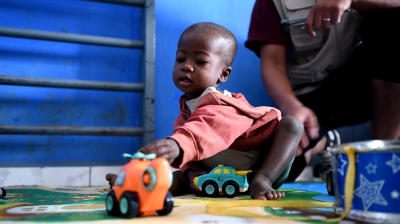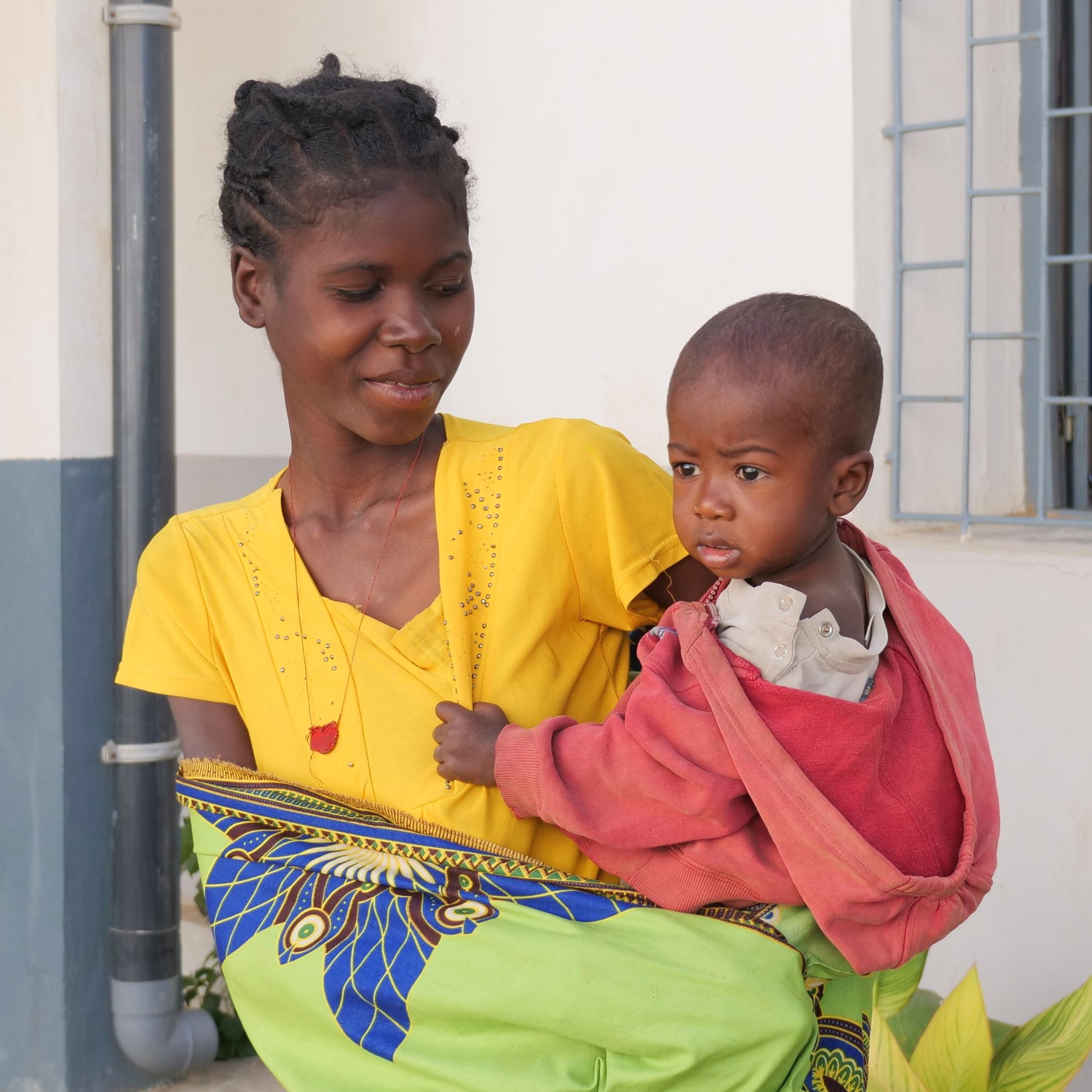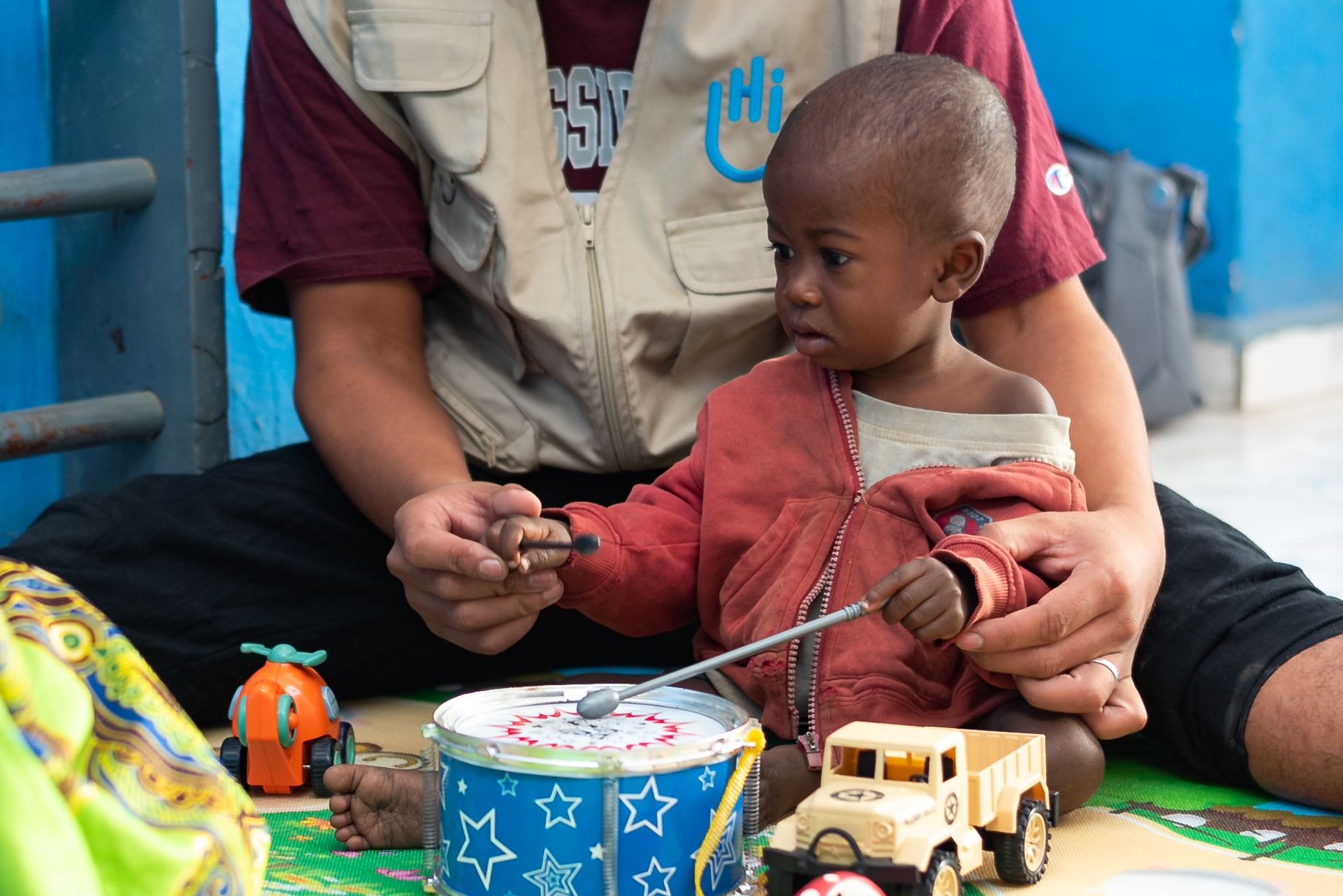share

Nasolo and his mother Odile in a stimulation therapy session with physical therapist Jean Noel in Tuléar Madagascar. | © Parany.Photo / HI
Odile struggles to afford enough food for her son Nasolo, who is now facing malnutrition. HI provides stimulation therapy to help him overcome the consequences.
 “My 16-month old son, Nasolo, is underweight for his age, he struggles to hold things in his hands and he cannot walk yet,” says Odile, Nasolo’s mother.
“My 16-month old son, Nasolo, is underweight for his age, he struggles to hold things in his hands and he cannot walk yet,” says Odile, Nasolo’s mother.
“A community agent came to our home and found that Nasolo was malnourished.”
HI trains community agents to recognize signs of malnutrition and vulnerability. They then visit communities in the areas surrounding Tuléar, Madagascar, where malnutrition is common due to high poverty rates and dwindling food supply in an ongoing drought. The community agents identify children who may be in need of stimulation therapy and support from HI. If left untreated, malnutrition can cause developmental delays in young children which may lead to long-term disabilities or neurological disorders.
After meeting with the community agent, Odile was encouraged to enroll Nasolo in early childhood stimulation therapy at the Tuléar hospital rehabilitation center, where HI uses strategic play-based rehabilitation to encourage physical and cognitive development in undernourished children.
 Nasolo’s mother Odile is only 18 years old and is raising her son as a single parent. She has not been able to find work, which makes it difficult for her to provide sufficient food for her only child. At the moment, she is wholly dependent on her mother to care for both her and Nasolo.
Nasolo’s mother Odile is only 18 years old and is raising her son as a single parent. She has not been able to find work, which makes it difficult for her to provide sufficient food for her only child. At the moment, she is wholly dependent on her mother to care for both her and Nasolo.
Odile lives 50 km from the rehabilitation center and has to travel for an hour and a half to bring Nasolo to his stimulation therapy sessions. To support her and other families with children in stimulation therapy, HI organizes and covers the costs of coming to the center, including the taxi bus for their travels, and accommodation if they need to stay overnight. The organization also covers food expenses during their stay and the cost of the rehabilitation services.
 Nasolo is attending his third stimulation therapy session with the physical therapists and continues some exercises when he is at home with his mother. He is already starting to see some results.
Nasolo is attending his third stimulation therapy session with the physical therapists and continues some exercises when he is at home with his mother. He is already starting to see some results.
“He can’t walk yet, but he is now able to hold things in his hand,” Odile says. “He loves toys and he likes to come here where he can play. I am very happy now that he has started to show progress.”








HI is an independent and impartial aid organisation working in situations of poverty and exclusion, conflict and disaster. We work alongside people with disabilities and vulnerable populations, taking action and bearing witness in order to respond to their essential needs, improve their living conditions and promote respect for their dignity and fundamental rights.
HI is an independent and impartial aid organisation working in situations of poverty and exclusion, conflict and disaster. We work alongside people with disabilities and vulnerable populations, taking action and bearing witness in order to respond to their essential needs, improve their living conditions and promote respect for their dignity and fundamental rights.